This article discusses social media tips and the importance of growing a loyal following. It suggests establishing business goals and objectives, researching and analyzing the target audience, and choosing the right social media platforms. Additionally, we recommend developing a social media small business content strategy and setting measurable goals in order to track progress.
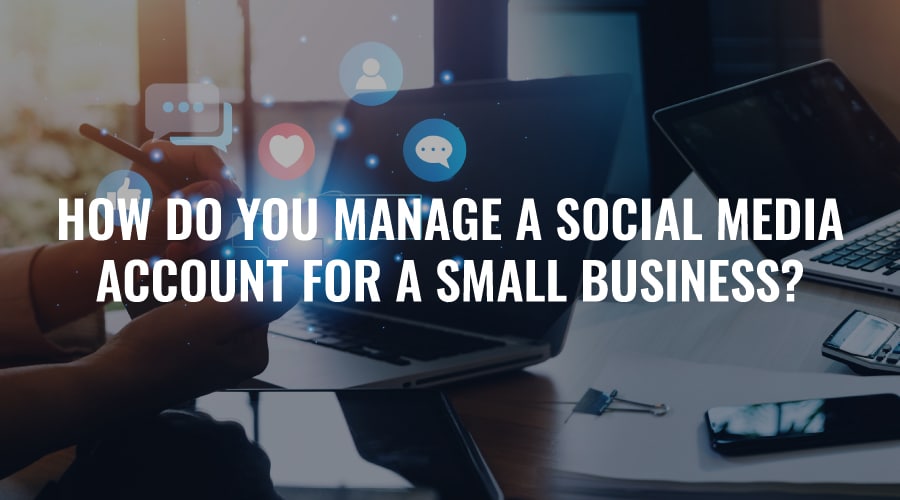
HOW DO YOU MANAGE A SOCIAL MEDIA ACCOUNT FOR A SMALL BUSINESS?
Social media can be a great way to connect with customers and promote your brand. However, it can also be time-consuming and overwhelming, especially for small businesses. Here are a few tips for managing a social media account for a small business:
1. Define your goals.
What do you want to achieve with your social media accounts? Do you want to increase brand loyalty, drive traffic to your website, or generate sales? Once you know your goals, you can create content that aligns with those objectives.
2. Choose the right platform.
Not all social media channels are created equal. Some platforms are better for certain types of businesses than others. For example, if you’re a visual business, like a restaurant or retail store, Instagram might be a good fit. If you want to share long-form content, like blog posts or whitepapers, Twitter or LinkedIn might be better options.
3. Create schedules and content calendars.
One of the best ways to stay organized and consistent with your social media posting is to create schedules and a social media calendar. This will help you plan and ensure you’re posting the right kind of content at the right time. Most social media management tools provide the ability to organize and plan your social media posts.
4. Monitor your activity and analytics.
Social channels have built-in analytics tools that allow you to track your activity and measure your results. Monitoring your analytics will help you see what’s working and what’s not so you can adjust your strategy accordingly.
5. Be responsive and engaging.
Social media is all about two-way communication. Make sure you regularly interact with your social media users by responding to comments, answering questions, and sharing relevant content. The more engaging you are, the more likely people will be to stick around and continue following you.

CAN I PAY SOMEONE TO RUN MY SOCIAL MEDIA?
Social media has become an essential tool for businesses of all sizes. It provides a way to connect with customers, promote products and services, and build brand awareness. However, managing a successful social media presence requires time and effort. Posting regularly, creating engaging content, and responding to comments and messages can be full-time job.
For businesses that don’t have the resources to dedicate to social media, there are many agencies and freelancers who offer social media management services. While there is no one-size-fits-all solution, working with a professional can help take your social media game to the next level.
HOW MUCH DOES IT COST TO HIRE SOMEONE TO MANAGE SOCIAL MEDIA?
Social media management can be a full-time job in and of itself. After all, staying up-to-date with the latest platforms, algorithms, and industry trends is no easy feat.
And that’s not even taking into account the time it takes to create engaging content, monitor metrics, and respond to comments and messages. As a result, many businesses choose to hire a Social Media Agency to handle their Social Media Management.
Social Media Agencies typically charge between $500 and $2000 per month, depending on the scope of work. For example, a small business with one Social Media platform may only need a few hours of Social Media Management per week, while a larger business with multiple social channels may need 20 or more hours per week.
In either case, Social Media Management is an important investment that can help to build your brand and grow your business.
How much does hiring a Social Media position in your company cost to hire?
It will depend on a number of factors, including the scope of work, your goals and needs, as well as the experience level and expertise of the person you hire. In general, hiring a Social Media Manager internally or Specialist can range from $3,000 to $6,000+ per month for a small business, and up to $10,000 per month or more for a larger organization with multiple Social Media platforms. The right candidate can help you achieve your social media goals and drive results for your business, so it is definitely worth investing in!
How much does it cost to hire a social media agency or freelancer?
The cost of hiring a social media agency or freelancer can vary widely, depending on factors such as the scope of work, your business goals, and the experience level of the professional you hire. In general, social media agencies and freelancers typically charge from $500 to $1,000 per month for small businesses and up to $10,000 or more per month for larger organizations with multiple social channels. Ultimately, the right social media agency or freelancer can help you achieve your business goals and drive results for your company, making it a worthwhile investment.
WHAT DO MOST SMALL BUSINESSES PAY FOR SOCIAL MEDIA MANAGEMENT?
Social media management for small businesses usually means paying someone to help create, curate and post content across multiple platforms on a regular basis. Depending on the size of the company and the scope of the social media presence, this can be a part-time or full-time job.
The cost of social media management will also vary depending on the number of platforms being used, the frequency of social posts and the level of engagement with social media followers. That said, most small businesses can expect to pay at least $500 monthly for social media management services.
Hiring a freelancer or Social Media Consultant may be more effective for getting things up and running for companies that are just starting out. Once the business is established and there is a greater need for ongoing content creation, it may be worth investing in a Social Media Manager.
This person will work with the company to develop a Social Media Strategy and then oversee its execution. The Social Media Manager will also be responsible for tracking metrics and analyzing data to ensure that the company is getting the most out of its social media investment.
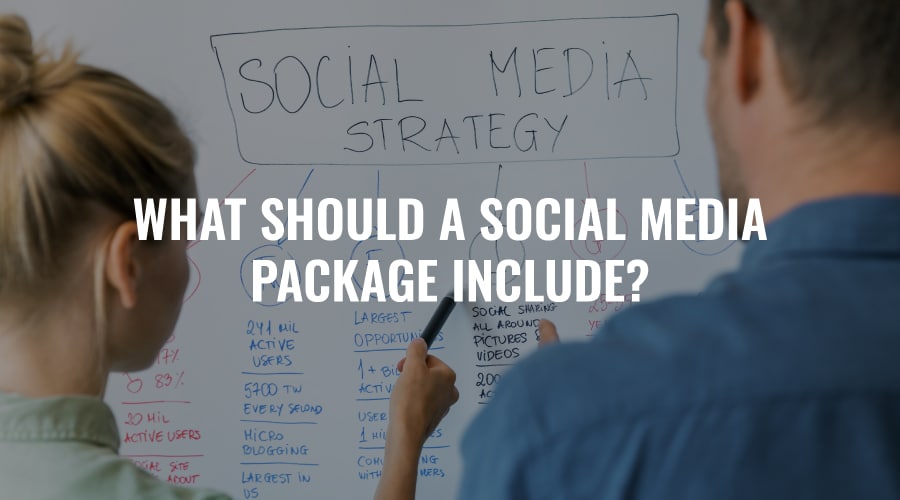
WHAT SHOULD A SOCIAL MEDIA PACKAGE INCLUDE?
The complete social media marketing package
A social media marketing package will typically include a range of services designed to help businesses improve their presence and engagement on various social media networks. These services may include things like content creation and curation, social media monitoring and analytics, community management, paid advertising campaigns, and more.
Social media advertising
One of the key components of a social media marketing package will often be social advertising, which involves promoting your business on various platforms such as Facebook, Instagram, Twitter, and Snapchat.
The scope of social advertising can vary depending on your social media goals and the needs of your business, but may include things like brand awareness campaigns, lead generation and conversion efforts, targeted advertising, and more.
Platform-specific social media management
In addition to general social media management, many agencies and freelancers also offer tailored services for specific platforms, such as Facebook Ads or Instagram Stories. This can be a good option if your business has specific goals or target audiences on certain social platforms, and you want to ensure that these are being effectively targeted and managed.
Scheduling social media content and maintaining social presence
Another component of a social media marketing package could be content scheduling and social media monitoring, which involves creating a schedule for posting new content to your platforms and monitoring your overall social media presence to ensure that you’re engaging with followers and reaching your desired audience. This can be especially important for businesses that don’t have a dedicated social media manager or team, and need help maintaining regular content updates on their platforms.
Community management
Social media marketing packages may also include community management, which refers to managing interactions with your followers and other users on social platforms. As a business, responding promptly to comments, messages, and mentions is important so that you can engage with potential customers and display your brand values.
Visual content creation
In addition to general content creation and curation, many social media marketing packages will include services related to visual content creation. This can include consulting on how best to use images or videos in your social media strategy and creating custom graphics, video content, and other visuals that can help engage followers and boost visibility.
Onsite content creation
Finally, some social media marketing packages may also include onsite content creation services. This can be particularly useful for businesses that want to ensure that their website and blog are optimized for search engines and generating leads, or that they’re regularly posting new content on their platforms in order to boost engagement.
Influencer outreach
To further amplify your social media marketing efforts, many agencies and freelancers will also offer services related to influencer outreach. This can involve reaching out to key social media influencers in your industry or niche to help drive awareness of your brand and create opportunities for partnerships or collaborations that can boost reach and engagement.
How important is Social Media Marketing for small business? With all of these services combined, a social media marketing package can be an extremely powerful tool for any business looking to increase visibility, engagement, and ROI on social media. Whether you’re looking for general support or specialized services, there are many options available to suit your needs.
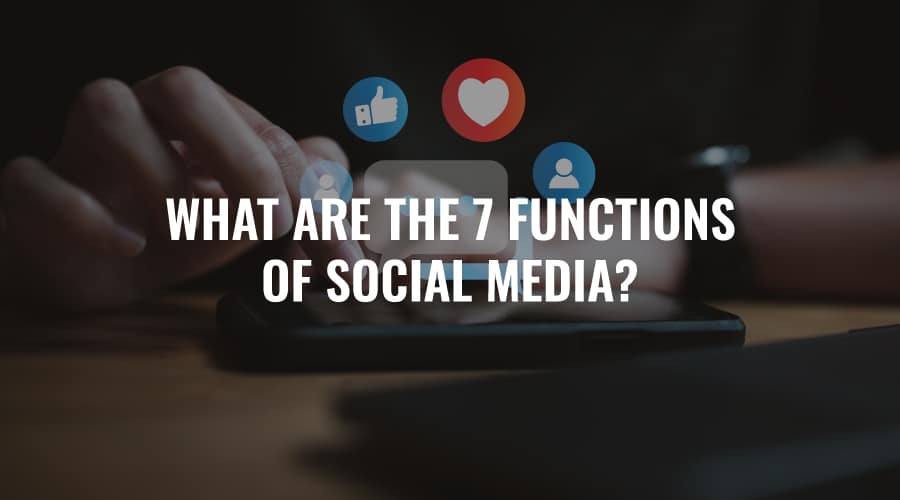
WHAT ARE THE 7 FUNCTIONS OF SOCIAL MEDIA?
Social media has many different functions and uses, depending on the platform or platforms used. Some common examples include:
IDENTITY:
Social media provides an opportunity for users to create and share content about themselves, which can help them establish their personal brand or identity.
CONVERSATIONS:
Social media is a powerful tool for facilitating conversations and connections between users, whether they are individuals or businesses.
SHARING:
Social media is also commonly used to share information, news, and content with followers or other users.
PRESENCE:
Social media platforms are often used to help businesses or other organizations maintain a presence through regular updates, customer service interactions, or hosting conversations with followers.
RELATIONSHIPS:
Social media can also be used to build and strengthen relationships with other users, customers, or clients. This may involve interacting directly with followers or customers, or collaborating or partnering with influencers in order to reach a wider audience.
REPUTATION:
In addition to building relationships, social media can also be used to manage and improve a business’s reputation by responding promptly to customer feedback or complaints.
GROUPS:
Your social media network is also commonly used for networking and connecting with others, either in groups or one-on-one. This can include joining relevant groups or communities on a platform, building connections with other users, or reaching out to the wider community to collaborate or partner.
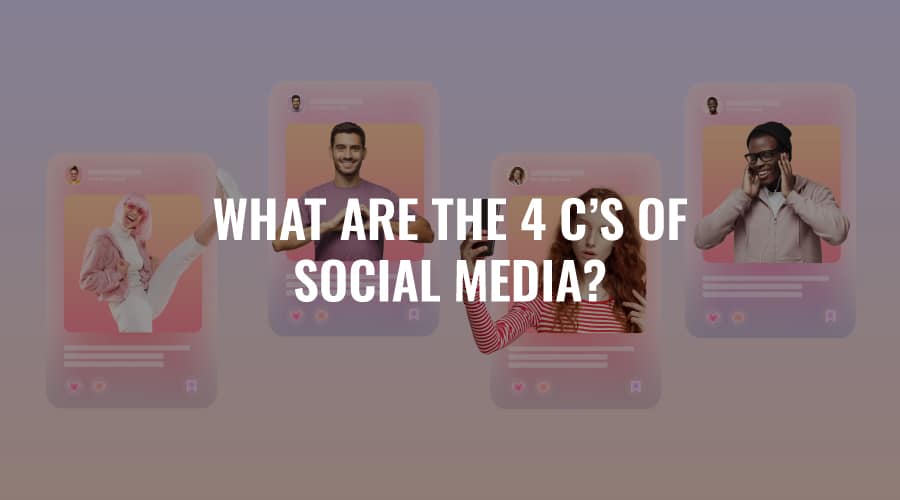
WHAT ARE THE 4 C’S OF SOCIAL MEDIA?
Many elements or “Cs” can be considered when thinking about social media, such as content, connectivity, community, and conversation. Some common examples of these elements include:
COMMUNITIES:
Your social media network is often used to create and engage with online communities, which can be based around a shared interest or passion, location, profession, or other factors.
CONVERSATIONS:
Social media is also a powerful tool for connecting and communicating with others, whether in one-on-one interactions or group discussions.
CHANNELS:
In addition to connecting with others, social media can also be used as a powerful channel for sharing and distributing content. This may involve creating or curating original content, linking to relevant articles or blog posts, or leveraging the power of user-generated content.
CAMPAIGNS:
Social media can also be used as part of larger marketing or outreach campaigns for specific projects, products, or events. This may involve using various social platforms and tools to promote the campaign, connect with followers, engage with users in real-time, or track results.
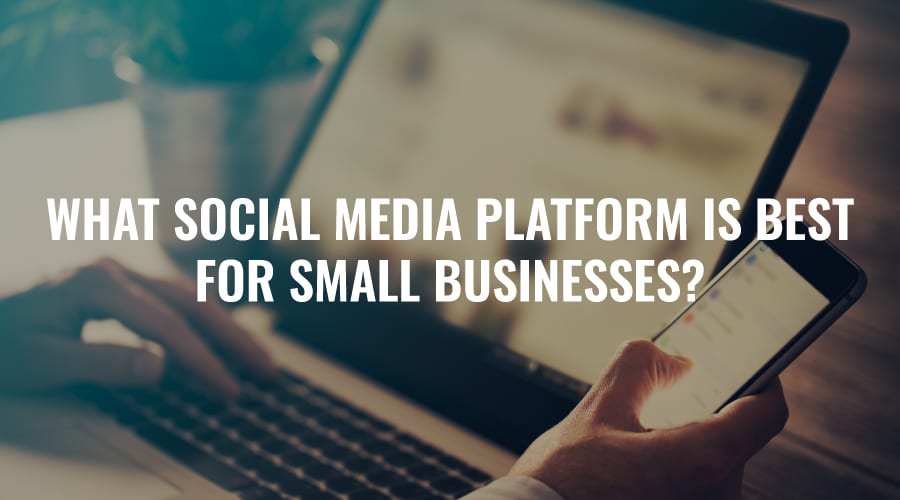
WHAT SOCIAL MEDIA PLATFORM IS BEST FOR SMALL BUSINESSES?
There is no one “best” social media platform for small businesses, as each comes with its own advantages and disadvantages. Some of the factors that may be considered when choosing a platform include the demographics of your target audience, your budget and resources, your business goals or objectives, and the type of content you plan to share.
Some popular options for small businesses include Facebook, Twitter, Instagram, Pinterest, LinkedIn, and YouTube. Depending on your needs and goals, you may find that one platform works better for your business than others.
Ultimately, choosing a platform that best fits your unique situation and audience is important.
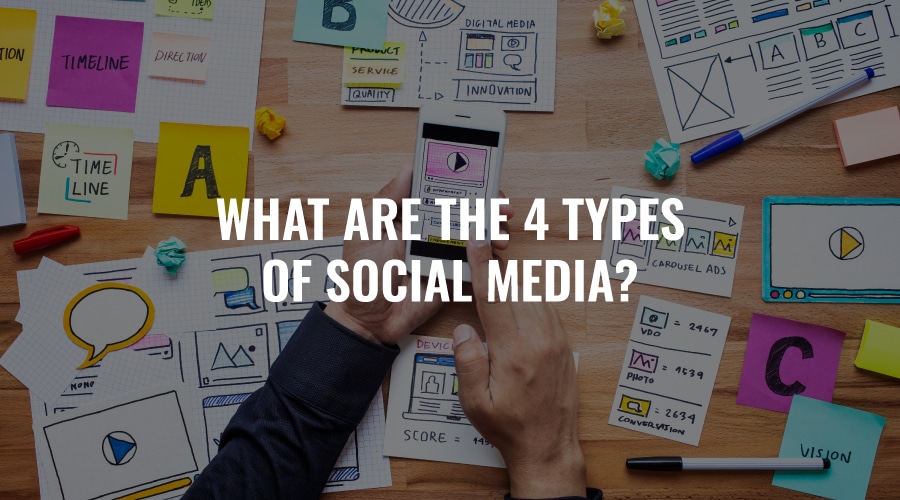
WHAT ARE THE 5 TYPES OF SOCIAL MEDIA?
Social Networking
Social networking platforms, such as Facebook or Twitter, are one of the most common types of social media. These platforms allow users to connect with and engage with others based on shared interests or communities.
Photo Sharing
Photo-sharing platforms such as Instagram, Flickr, and Pinterest allow users to share images or videos with a wider community. These platforms can also be used to engage followers or potential customers by featuring user-generated content or promoting products or services through visual media.
Video Sharing
Video-sharing sites such as YouTube, Vimeo, and TikTok are popular social platforms allowing users to share and engage with video content. In addition to sharing original videos, these sites can be used for promoting products or services through paid advertising or user-generated content.
Interactive Media
Interactive media platforms, such as forums or discussion boards, are another common type of social media. These sites allow users to connect around a shared topic or interest and can be used for research, networking, collaboration, and more.
Blogging/Community Building
Blogging and other community-building platforms can be used to share content, engage with others, and more. They are often used to build online communities based around a particular topic or interest, such as travel, fashion, food, parenting, sports, or lifestyle.
Other common examples of social media tools for building community include discussion forums, messaging apps, and virtual worlds. Regardless of which social media platforms you choose, it is important to remain active, consistent, and engaging in building your online presence and effectively reaching your target audience.
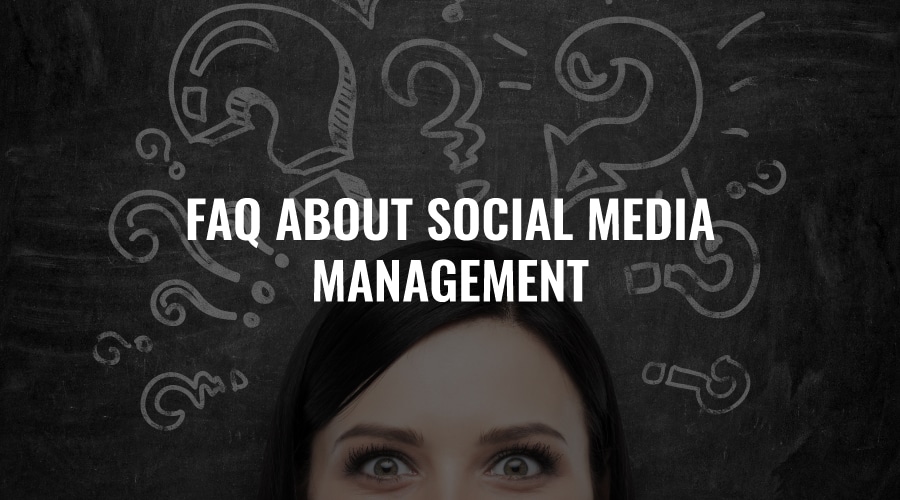
FAQ ABOUT SOCIAL MEDIA MANAGEMENT
How do small businesses use social media for marketing?
Small businesses can use social media for a variety of marketing purposes, from increasing brand awareness to driving website traffic to generating leads and sales.
One effective way to use social media for marketing is to create valuable content that attracts attention and encourages people to share it with their followers. This could include blog posts, infographics, images, or videos.
You can also use social media to connect with customers and prospects on a more personal level, by engaging with them in conversation and answering their questions.
And finally, don’t forget the importance of tracking results so you can determine which social media channels are providing the best return on investment.
Does social media help small businesses?
Yes, social media can help small businesses connect with new customers and build relationships with existing customers.
Social media platforms like Facebook, Twitter, and LinkedIn allow small businesses to share information about their products and services with a wider audience. They also give customers a way to connect with businesses more personally. This can help build trust and loyalty among customers.
Small businesses can also use social media to drive traffic to their websites and online stores. By sharing links to their websites and products on social media, they can reach a larger number of people who may be interested in what they have to offer.
What are the benefits of social media for small business?
Social media can help businesses build relationships with their customers and create a community of followers. It can also help businesses advertise and promote their products or services.
Additionally, social media can be used to track customer sentiment about a company or product, allowing businesses to make changes or adjust their marketing strategy accordingly.
How do I introduce social media to my small business?
If you’re not sure where to start, you might want to consider creating a Facebook page for your business. Facebook is one of the most popular social media platforms, and it’s a great way to connect with customers and promote your products or services.
To create a Facebook page for your business, visit https://www.facebook.com/pages/create/?ref=page_type and follow the instructions. Once you’ve created your page, be sure to add information about your business, including a description, website URL, and contact information. You can also upload photos and videos, and create social posts to share news and updates about your business.
Facebook pages are free to create, so there’s no excuse not to get started and start engaging with your customers on social media!
What are the 5 main reasons businesses use social media?
1. To connect with customers and create relationships
2. To communicate with customers about products, services, and company news
3. To learn more about customers and their needs
4. To drive traffic to the company website or blog
5. To promote and sell products and services through social media channels
Why do small businesses fail in social media?
Small businesses often fail in social media because they don’t understand that social media is not just another advertising channel. It’s a way to connect with customers and create a community around your business.
Here are some tips for small businesses to succeed in social media:
1. Make sure your social media profiles are complete and accurate.
2. Connect with other businesses and individuals on LinkedIn, Twitter, and Facebook.
3. Share valuable content that your customers will find interesting and useful.
4. Respond to comments and questions from customers promptly and courteously.
5. Use hashtags to increase the reach of your posts.
6. Monitor your analytics to see how well your social media campaigns are performing
What are the 3 main goals of social media?
The three main goals of social media are to create a connection with customers, to build brand awareness, and to generate leads.
Social media platforms provide businesses with the opportunity to connect with customers in a more personal way. Through social media, businesses can build relationships with their customers and learn their needs and wants. In addition, social media can help businesses increase brand awareness. Businesses with a strong presence on social media send the message that they are an authority in their industry. Finally, social media can be used to generate leads by providing potential customers with information about the company and its products or services.
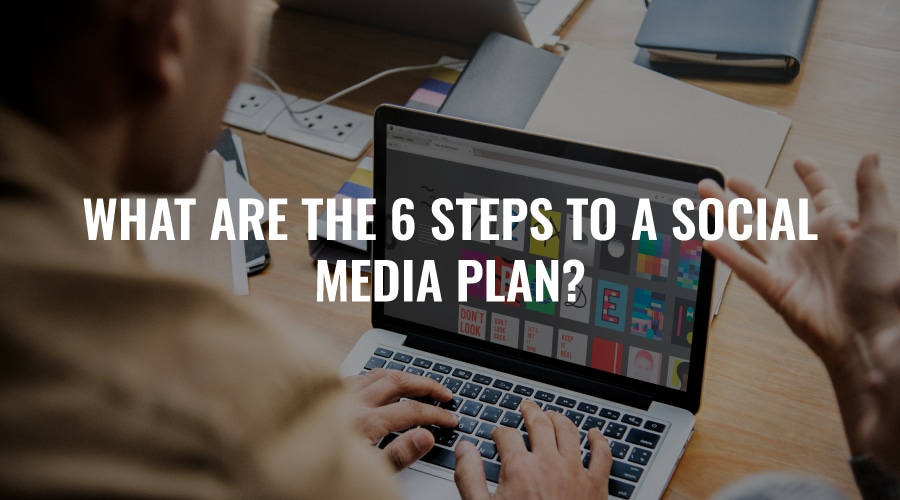
WHAT ARE THE 6 STEPS TO A SOCIAL MEDIA PLAN?
1. Define your business goals and objectives.
Before you can develop a social media plan, it is important to clearly define the goals and objectives of your business. This may include increasing brand awareness, engaging with customers or followers, driving traffic to your website, promoting specific products or services, or any other desired outcome.
2. Research and analyze your target audience.
In order to effectively engage with your target audience, it is important to understand who they are, their interests and needs, and how best to reach them through social media. This may involve conducting market research or analyzing data from existing social platform campaigns.
3. Choose the right platforms for your business.
Many different social media platforms are available, and each may be better suited to different business needs or goals. Depending on your audience, industry, products or services, budget, and other factors, you may find that one platform works better than others for your business.
4. Develop a content strategy.
Along with choosing the right social media platforms for your business, developing a content strategy that includes regular posts, updates, and other engaging content is also important. This may involve crafting unique messages for each platform, using relevant hashtags, taking advantage of user-generated content opportunities, or any other tactics that will help you effectively reach your target audience.
5. Set measurable goals and track performance.
Once you have created your social media plan and begun posting content, it is important to set measurable goals that can help you to track performance and determine effectiveness. This may include tracking likes, shares, retweets, comments, followers, page views, or other key metrics.
6. Establish a process for ongoing optimization and improvement.
Finally, it is important to have a clear process in place for ongoing optimization and improvement of your social media presence. This may involve A/B testing different content or post types, analyzing performance data, or making tweaks to improve engagement over time.
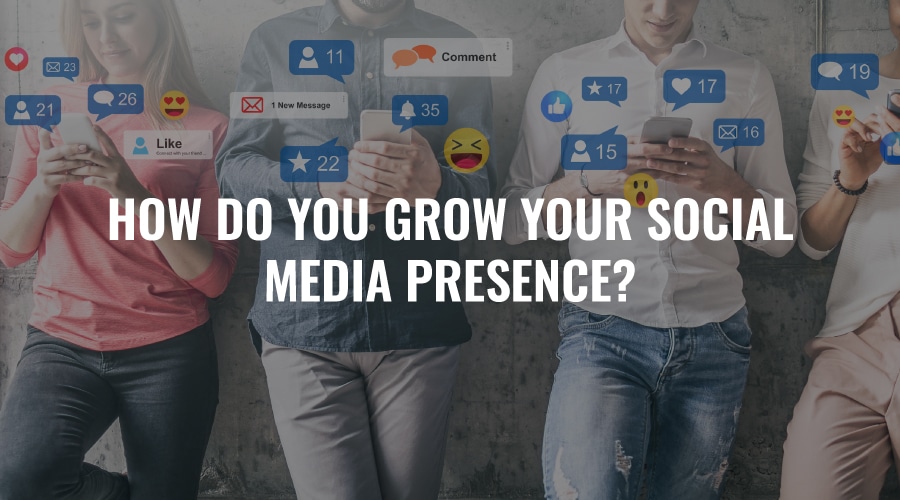
How do you grow your social media presence?
Several social media strategies for small business and tactics can be used to grow your social media presence, including focusing on quality content, engaging with followers and users, and leveraging tools and platforms to reach more people. Other key considerations include remaining active, consistent, and authentic in your messaging, as well as tracking performance metrics and making adjustments based on data and feedback.
Ultimately, the key to success in social media is to focus on quality over quantity and consistently build meaningful connections that help you reach your target audience effectively.
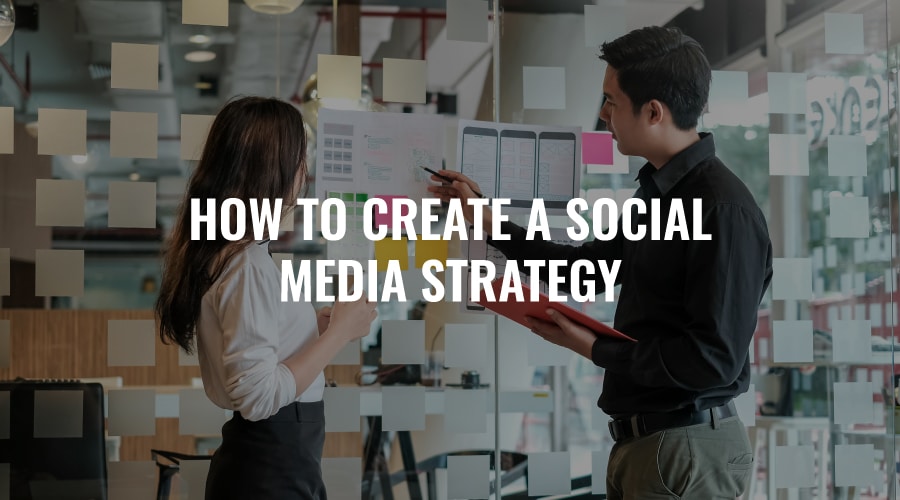
How to create a Social Media Strategy For Small Business
1. Define your business goals and objectives.
The first step in creating a successful social media strategy is to clearly define the goals and objectives of your business. This may include growing brand awareness, engaging with customers or followers, driving traffic to your website, promoting specific products or services, or any other desired outcomes.
2. Research and analyze your target audience.
Once you have determined your goals, it is important to understand your target audience, their interests and needs, and how best to reach them through social media. This may involve conducting market research or analyzing data from existing social media campaigns and engaging directly with users on different platforms.
3. Choose the right social media platforms for your business.
Many different social media platforms are available, and each may be better suited to different business needs or goals. Depending on your audience, industry, products or services, budget, and other factors, you may find that certain platforms work better than others for your business. Some key considerations to keep in mind when choosing social media platforms include user demographics and behaviors, post frequency, content type and format, and other factors.
4. Develop a content strategy.
Along with choosing the right social media platforms for your business, developing a content strategy that includes regular posts, updates, and other engaging content is also important. This may involve crafting unique messages for each platform, using relevant hashtags, taking advantage of user-generated content opportunities, or any other tactics that will help you effectively reach your target audience.
5. Set measurable goals and track performance.
Once you have created your social media plan and begun posting content, it is important to set measurable goals that can help you to track performance and determine effectiveness. This may include tracking likes, shares, retweets, comments, followers, page views, or other key metrics.
Additionally, it is important to remain agile and make ongoing optimizations based on data and feedback to continuously improve your social media presence over time.

Summarizing Social Media For Small Business Owners
Using social media for small business can be a challenge, but if done correctly, it can be a great way to connect with customers and drive traffic to your website. The key is to focus on quality content, engage with followers and users, and track performance metrics to make adjustments based on data and feedback.
Additionally, it is important to have a clear process in place for ongoing optimization and improvement of your social media presence.
Some tips for successfully running social media for a small business include defining your objectives and goals, researching and analyzing your target audience, choosing the right platforms for your business, developing a content strategy that includes regular posts and updates, and setting measurable goals to track performance.
With these strategies in place, you can build meaningful connections with customers and effectively promote your products or services online.
